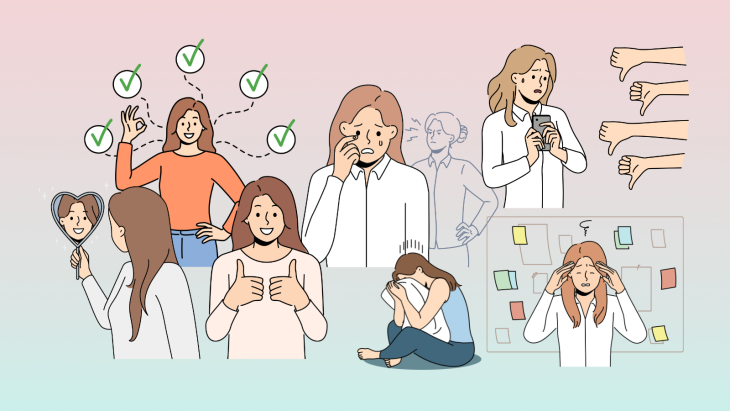Recent Posts
- The Anxious Generation. What is causing Gen Z's mental health crisis?
- Do you have to play games to make relationships work?
- Can a Therapist Find love? The Dating Life of a Therapist.
- Can a Therapist Benefit from Therapy?
- My kid's schedule is fully packed with after-school activities everyday. How much is too much?
Most Popular
Criticisms hurt, but how can I use criticism as an opportunity for growth?

Humans have an innate need of being connected to others, of being accepted and loved. Naturally, there is also in us the fear of being rejected or embarrassed.
As we grow into adults and as we deal with changes in our emotional and mental lives, our social connections become more complex. Thriving in our adult lives requires more emotional and cognitive adaptive skills. And one of the most important skills is our ability to receive feedback and use it for growth.
Understanding feedback and criticism
For a long time now, researchers and educators have been interested in the role of feedback in producing either positive or negative results. Positive feedback or giving praise - a sign of appreciation for achieving a goal- has been associated with increased confidence and positive emotions in the feedback receiver. However, researchers also believe that praise tends to produce decreased motivation, making the recipient believe that the positive thing is a trait, and not something that requires further action and effort on their part. This gave way to the idea that learners’ specific efforts should be praised, rather than the learner as an individual.
On the other hand, there is a negative connotation among educators in providing criticism because it is considered a challenge telling someone about their failure in performing a task. Teachers fear that negative feedback or criticism might also negatively affect learners’ motivation instead of encouraging them to improve.
Researchers also believe that how we perceive feedback and criticism is key to their beneficial effects.
The good news is that when criticism is viewed as constructive, we may feel that...
- it identifies areas of improvement in our understanding
- it gives us instructions on how to improve
- a sense of hope and and awareness of our potential to grow occurs together with unpleasant emotions from our failure
Using criticism as opportunities for growth:
- Accept criticism and feedback from experts in the field.
When the feedback comes from someone who is skillful in an activity we are doing, they use objective measures to check our performance, and they have immense knowledge in the subject, it is easier to believe and trust their criticism.
Finding a teacher, coach, mentor or an expert to look into our work and give us their thoughts. We understand that they have insights that we still need to apply to take us to the next skill level.
- Find the good intentions and listen actively to get new perspectives.
There is a reason why we choose the people we invite to take a look at our progress. We assume that they want the best for us and they want us to succeed. Cultivate this mindset that whatever they may say about our work, it comes from a place of good intentions. Their perspective may be something novel to us, but they give it because they want to help us reach our goals.
- Develop the traits of openness and hard work.
Researchers studied what traits made students more receptive to feedback that made them more engaged to it and increased their behaviors to improve based on the feedback. They found that the traits of being open and conscientious or hard working were better predictors of how well we receive criticism.
We can say that working on our mindset and skills to be open to feedback and developing our diligence will enable us to use criticism for growth.
- Develop the skill to respond calmly and curiously to criticism.
You did a lot of work to produce your work, then have someone critique your work. This is just the beginning of the process of our growth! Many think that feedback should not be questioned, but since we are just starting the process, we can proceed to respond to the feedback, calmly, ask questions to clarify the feedback points, and even explain if there was a misunderstanding.
Receiving criticism is indeed a powerful influence to our thought process and behavior, but they need not be all negative. We can harness the power of criticisms by becoming more open to it, developing diligence, applying expert opinion, thinking of people’s good intentions, and becoming more curious.
On the lookout for in demand healthcare jobs especially in the mental health industry? Find out how using a job board can connect you with top medical jobs nationwide!








Comments